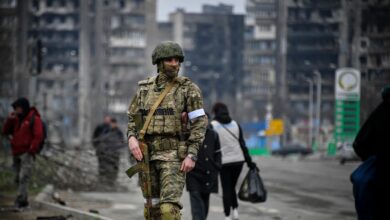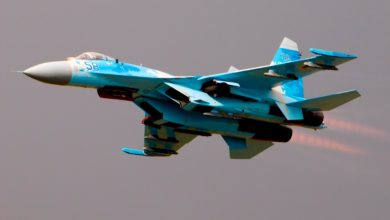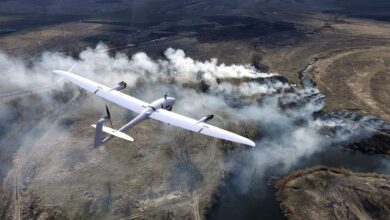Russian President Vladimir Putin is scrambling for a response to Ukraine’s spectacular military success over recent days, but it is difficult to predict the Kremlin’s next moves, strategy experts told AFP.
Having recaptured thousands of square kilometers of territory and several Russian-held towns, Kyiv appears in the driver’s seat on the battlefield, with some Ukrainian officials already talking about possible victory for President Volodymyr Zelensky‘s Western-backed army.
“This will be like a snowball that keeps rolling and rolling,” Ukrainian Defence Minister Oleksii Reznikov said triumphantly in French daily Le Monde on Monday. “We will see the retreat of the world’s second most powerful army.”
But experts caution that such predictions may be premature.
Russian defense ministry spokesman Igor Konashenkov said Monday that his country’s troops were bombing lost territories in the east of Ukraine, and promised that Moscow would continue fighting “until its objectives are met”.
On Tuesday, Russia said it was delivering “massive” strikes on Ukraine’s front lines.
‘Only tactical’
Major Russian troop movements are indeed likely after the setback, predicted Alexander Grinberg at the Jerusalem Institute for Strategy and Security, calling recent Ukrainian successes “spectacular, but only tactical.”
Ivan Klyszcz, at the Foreign Policy Research Institute in Estonia, warned that Ukrainian troops would not be able to sustain their offensive indefinitely.
“The Ukrainian forces will have to fortify themselves, especially along the border with Russia,” he told AFP.
The Russian leader, meanwhile, faces “limited” options, Klyszcz said, as he keeps an eye on public opinion at home.
“Putin has chosen so far against mobilizing Russia’s conscripts. Doing that would risk creating further instability as the demands on the population would grow substantially,” he said.
“The option of withdrawing all Russian forces is also risky, as the armed forces and the population expect some sort of victory.”

Meanwhile, Putin may simply be holding out for the onset of winter, which will exacerbate “Kyiv’s socio-economic problems,” said Alexander Khramchikhin, an independent Russian military expert.
To that end, Moscow could continue targeting Ukrainian infrastructure, creating “enormous problems” for Kyiv, he said.
Few expected the Ukrainian breakthrough despite Kyiv’s promises of a counter-offensive to recapture Kherson, one of the first cities to fall after the Russian attack in February.
One key development has been the scale of the Russian retreat in Ukraine’s north, from where Moscow moved troops with the aim of defending the south, leaving supply lines vulnerable.
“The attack on Kherson was not merely a diversion, but it did play that role,” Grinberg told AFP.
Russia’s logistical support operations have continued to be a prime target for Ukrainian strikes, noted Ben Hodges, the former commander of NATO’s forces in Europe.
Russian forces “depend heavily on rail transport for artillery ammunition and heavy equipment,” he tweeted at the weekend.
‘Unable to control’
“Capturing Kupiansk will mean major disruption of logistical support of frontline Russian troops in this area,” Hodges added.
Countless rivers criss-cross the region, Grinberg noted, saying “it’s enough to destroy bridges to cut off supply chains.”
Russia’s biggest problem may be a lack of military manpower, combined with its tradition of top-down hierarchies seen as out of touch with battlefield realities.
This has allowed Kyiv to shine with its unique combination of mobility, small autonomous units, and patriotic unity, experts said.
Russia is “unable to control large territories and a long frontline,” Khramchikhin said, adding that intelligence provided by the US will have helped Kyiv even more than weapon deliveries.
As a result, Ukraine managed to dislodge Russians in open battle “for the first time since the war began,” noted Michel Goya, a former French army colonel.
Its ability to organize two separate attacks involving 20,000 troops could point to “a reversal of capacity curves” between Ukraine and Russia, he said.
US Secretary of State Antony Blinken on Monday hailed “significant progress” by Ukraine, but also cautioned that “it’s too early to tell exactly where this is going.”
It would indeed be unwise to rule out the pendulum of war swinging back in Moscow’s favor again, Khramchikhin warned.
No matter how the next phase of the war plays out, the conflict will probably last for a long time, predicted the Russian expert.
“Maybe 20 years,” he told AFP.












